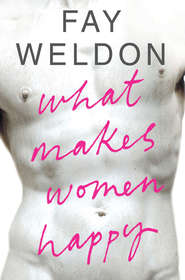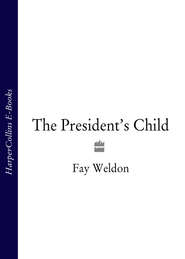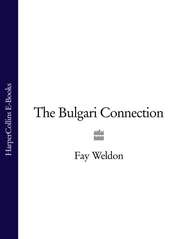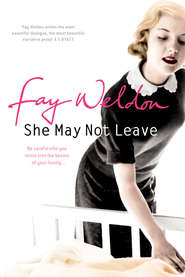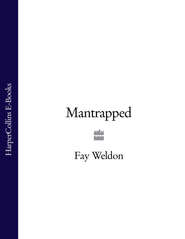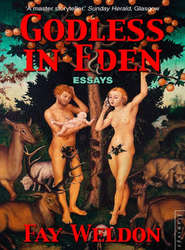По всем вопросам обращайтесь на: info@litportal.ru
(©) 2003-2024.
✖
Puffball
Автор
Год написания книги
2018
Настройки чтения
Размер шрифта
Высота строк
Поля
‘Goodbye, you horrible town,’ cried Liffey. ‘Hello country!
Nature, here we come!’ Richard wished she wouldn’t, Bella’s words in his mind. And, he rather feared, Bella’s lips. He had never thought of her as a sexual entity before. Mory and Helen moved in a couple of hours after Richard and Liffey had left. With them came Helen’s pregnant sister and her unemployed boyfriend, both of whom now had the required permanent address from which to claim Social Security benefits.
Honeycomb Cottage, in January, was perhaps colder and damper than Liffey had expected, and the rooms smaller: and the banisters had to come down before any furniture could get in, and Richard sawed the double bed in two to get it into the bedroom, but Liffey was happy, brave and positive, and by Wednesday evening had fires lit, decorative branches, however bare, in vases, and a cosy space cleared amongst chaos for a delicious celebration meal of bottled caviar, fillet steak (from Harrods), a whole pound of mushrooms between them, and champagne.
‘All this,’ marvelled Liffey, ‘and five pounds a week profit!’ She’d forgotten how much she’d asked Helen to pay, in the end. ‘You’re leaving out the fares,’ murmured Richard, but not too loud, for it was always unkind to present Liffey with too much reality all at once. Fares would amount to some thirty pounds a week. Liffey had bought a whole crate of new books—from thrillers, new novels, to heavy works on sociology and philosophy, which she intended to dole out to Richard day by day, for the improvement of his mind on the morning journey, and his diversion on the evening train—and Richard was touched.
‘It’s very quiet,’ said Richard, looking out into the blank, bleak wet night. ‘I don’t know what you’re going to do with yourself all day.’
‘I love the quietness,’ said Liffey. ‘And the solitude. Just you and me—oh, we are the most enviable of people! Everyone else just dreams, but we’ve actually done it.’
That night they slept on foam rubber in front of the fire, but did not make love, for they were exhausted. Richard wondered why someone so old and scraggy and cynical as Bella should be so attractive. Perhaps true love and sexual excitement were mutually exclusive.
Realities (#ulink_b3ee8d3a-dc70-54d9-8e63-35d557a27961)
On Thursday morning Liffey’s little alarm watch woke them at six. Liffey was up in a trice to make Richard’s breakfast. The hot water system was not working and there was ice in the wash basin, but he laughed bravely. Liffey had the times of the trains written out and pinned up above the mantelpiece. She tried to light the kitchen stove but the chimney was cold, and filled the room with smoke. She could not get the kettle to boil: she plugged in the toaster and all the electricity in the house fused: she could not grind the coffee beans for coffee. The transistor radio produced only crackle—clearly here it would need an aerial. Richard stopped smiling. Liffey danced and kissed and pinched and hugged, and he managed a wan smile, as he found the old candles he’d noticed in the fuse box. ‘I suppose, darling, they’d die if you took another day off work?’
‘Yes, they would,’ said Richard, longing for the warmth and shiny bright order of the office, and the solidarity of Miss Martin who never pranced or kissed, but offered him hot instant coffee in plastic mugs at orderly intervals.
Richard left the house at seven-thirty. Castle Tor station was twelve minutes’ drive away, and the train left at seven fifty-two.
‘Allow lots of time,’ said Liffey, ‘this first morning.’
Richard was delayed by the cow mire outside Cadbury Farm. The little Renault sank almost to its axles in the slime, for it had thawed overnight, and what the day before had been a hard surface now revealed its true nature. But revving and reversing freed the vehicle, though it woke the dogs, and he arrived, heart beating fast, at Castle Tor station at seven fifty. The station was closed. As he stood, open-mouthed, the fast train shot through.
Richard arrived back at Honeycomb Cottage at five minutes past eight. He stepped inside and slapped Liffey on the face, as she straightened up from lighting the fire, face blackened by soot.
Castle Tor station was closed all winter. Liffey had been reading the summer timetable. The nearest station was Taunton, on another line, twenty miles away. The journey from there to Paddington would take three hours. Six hours a day, thirty hours a week, spent sitting on a train, was clearly intolerable. And another eight hours a week spent driving to and from the station. To drive to London, on congested roads, would take even longer.
Richard hissed all this to Liffey, got back into his car, and drove off again.
Liffey cried.
‘I wonder what all that was about,’ said Tucker, putting down the field glasses.
‘Go on up and find out,’ said Mabs.
‘No, you go,’ he said.
So later in the morning Mabs put on her Wellington boots and her old brown coat with the missing buttons and paddled through the mire to Honeycomb Cottage and made herself known to Liffey as friend and neighbour.
‘Do come in,’ cried Liffey. ‘How kind of you to call! Coffee?’
Mabs looked at Liffey and knew she was a bubble of city froth, floating on the scummy surface of the sea of humanity, breakable between finger and thumb. Liffey trusted the world and Mabs despised her for it. ‘I’d rather have tea,’ said Mabs.
Liffey bent to riddle the fire and her little buttocks were tight and rounded, defined beneath stretched denim. The backside of a naughty child, not of a grown woman, who knows the power and murk that lies beneath, and shrouds herself in folds of cloth. So thought Mabs.
Liffey was a candy on the shelf of a high-class confectioner’s shop. Mabs would have her down and take her in and chew her up and suck her through, and when she had extracted every possible kind of nourishment, would spit her out, carelessly.
Liffey looked at Mabs and saw a smiling, friendly countrywoman with a motherly air and no notion at all how to make the best of herself.
Liffey was red-eyed but had forgiven Richard for hitting her. She could understand that he was upset. And it had been careless of her to have misread the train timetable. But she was confident that he would be back that evening with roses and apologies and sensible plans as to how to solve the commuting problem. And if it were in fact insoluble, then they would just have to move back into the London apartment, apologising to Mory and Helen for having inconvenienced them, and keep Honeycomb as a weekend cottage. Liffey could afford it, even if Richard couldn’t. His pride, his vision of himself as husband and provider, would perhaps have to be dented, just a little. That was all.
Nothing terrible had happened. If you were an ordinary, reasonably intelligent, reasonably well-intentioned person, nothing terrible could happen. Surely.
Liffey shivered.
‘Anything the matter?’ asked Mabs.
‘No,’ said Liffey, lying. Lying was second nature to Liffey, for Madge her mother always spoke the truth. Families tend to share out qualities amongst them, this one balancing that, and in families of two, as in the case of Madge and Liffey, the result can be absurd.
At that very moment Mory, who had brutal, concrete architectural tastes, looked round Liffey’s pretty apartment and said, ‘Christ, Liffey has awful taste!’ and then, ‘Shall we burn that?’ and Helen nodded, and Mory took a little bamboo wall shelf and snapped it between cruel, smooth, city hands and fed it into the fire so that they all felt warmer.
‘I hope Dick Hubbard’s given you a proper lease,’ said Mabs. ‘You can’t trust that man an inch.’
‘Richard sees to all that,’ said Liffey and Mabs thought, good, she’s the fool she seems.
Mabs was all kindness. She gave Liffey the names of doctors, dentist, thatcher, plumber and electrician.
‘You don’t want to let this place run down,’ she said. ‘It could be a real little love nest.’
Liffey was happy. She had found a friend in Mabs. Mabs was real and warm and direct and without affectation. In the clear light of Mabs, her former friends, the coffee-drinking, trinket-buying, theatre-going young women of her London acquaintance, seemed like mouthing wraiths.
A flurry of cloud had swept over from the direction of the Tor and left a sprinkling of thin snow, and then the wind had died as suddenly as it had sprung up, and now the day was bright and sparkling, and flung itself in through the window, so that she caught her breath at the beauty of it all. Somehow she and Richard would stay here. She knew it.
Mabs stood in the middle of her kitchen as if she were a tree grown roots, and she, Liffey, was some slender plant swaying beneath her shelter, and they were all part of the same earth, same purpose.
‘Anything the matter?’ asked Mabs again, wondering if Liffey were half-daft as well.
‘Just thinking,’ said Liffey, but there were tears in her eyes. Some benign spirit had touched her as it flew. Mabs was uneasy: her own malignity increased. The moment passed.
Mabs helped Liffey unpack and put straight, and half-envied and half-despised her for the unnecessary prodigality of everything she owned—from thick-bottomed saucepans to cashmere blankets. Money to burn, thought Mabs. Tucker would provide her with logs in winter and manure in summer: she’s the kind who never checks the price. A commission would come Mabs’ way from every tradesman she recommended. Liffey would be a useful source of income.
‘Roof needs re-doing,’ said Mabs. ‘The thatch is dried out: it becomes a real fire-risk, not to mention the insects! I’ve a cousin who’s a thatcher. He’s booked up for years but I’ll have a word with him. He owes me a favour.’
‘I’m not certain we’ll be able to stay,’ said Liffey sadly, and Mabs was alerted to danger. She saw Liffey as an ideal neighbour, controllable and malleable.
‘Why not?’ she asked.
Public tears stood in Liffey’s eyes at last, as they had not done for years. She could not help herself. The strain of moving house, imposing her will, acknowledging difficulty, and conceiving deceit, was too much for her. Mabs put a solid arm round Liffey’s small shoulders, and asked what the matter was. It was more than she ever did for her children. Liffey explained the difficulty over the train timetable.
‘He’ll just have to stay up in London all week and come back home weekends. Lots of them round here do that,’ said Mabs.
Liffey had not spent a single night apart from Richard since the day she married him, and was proud of her record. She said as much, and Mabs felt a stab of annoyance, but it did not show on her face, and Liffey continued to feel trusting. ‘Lots of wives would say that cramped their style,’ said Mabs.
‘Not me,’ said Liffey. ‘I’m not that sort of person at all. I’m a one-woman man. I mean to stay faithful to Richard all my life. Marriage is for better or worse, isn’t it.’
‘Oh yes,’ said Mabs, politely. ‘Let’s hope your Richard feels the same.’






